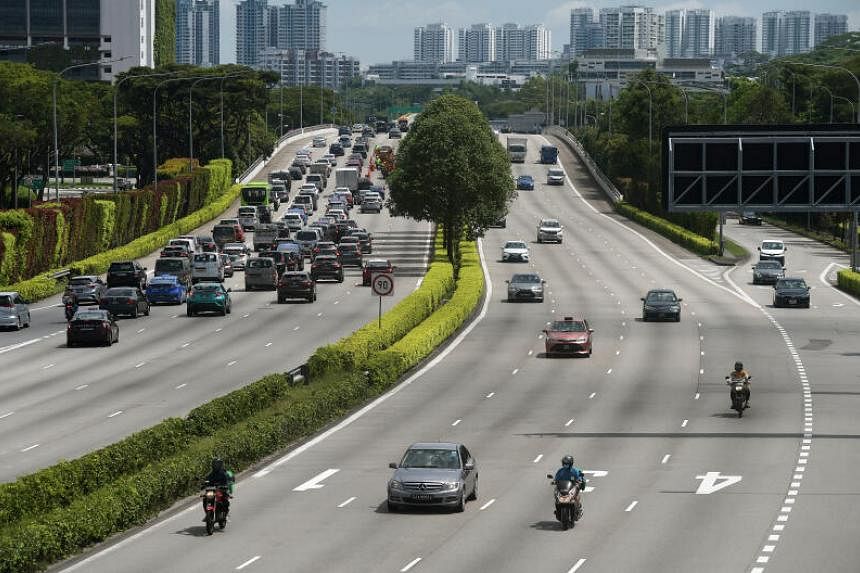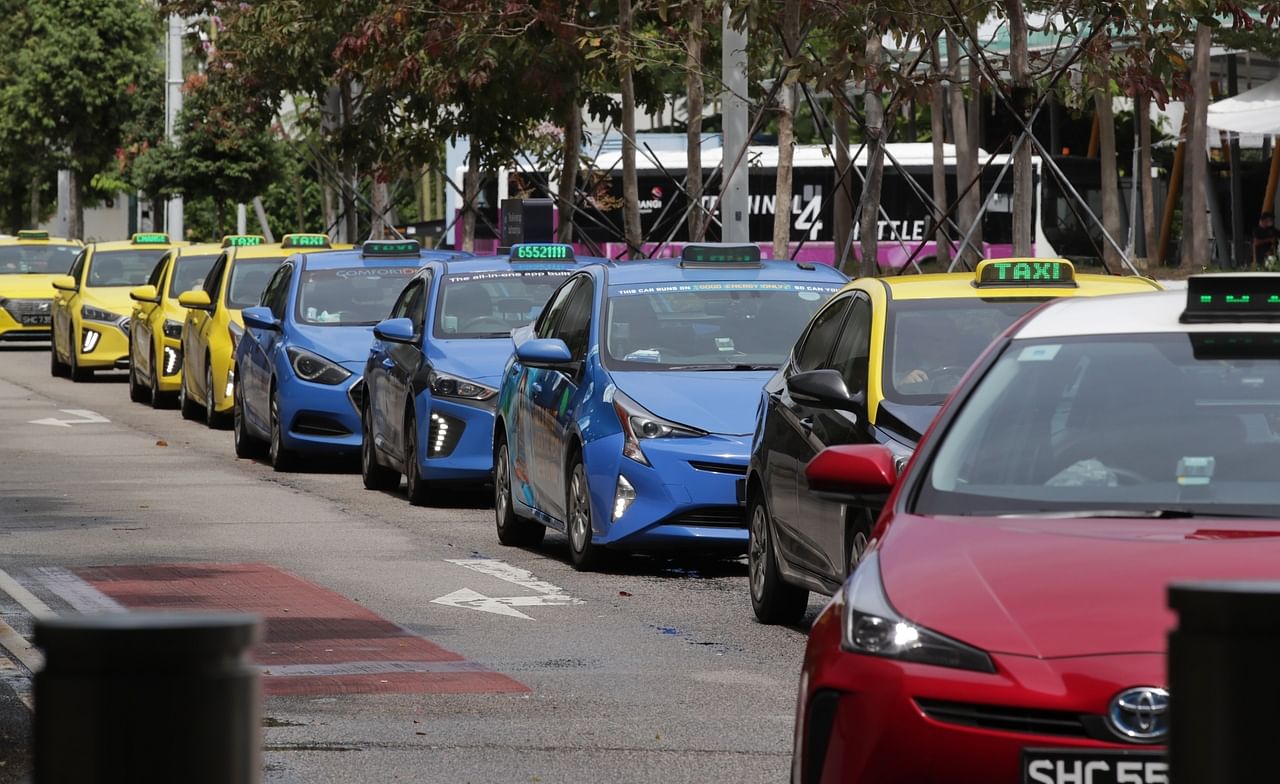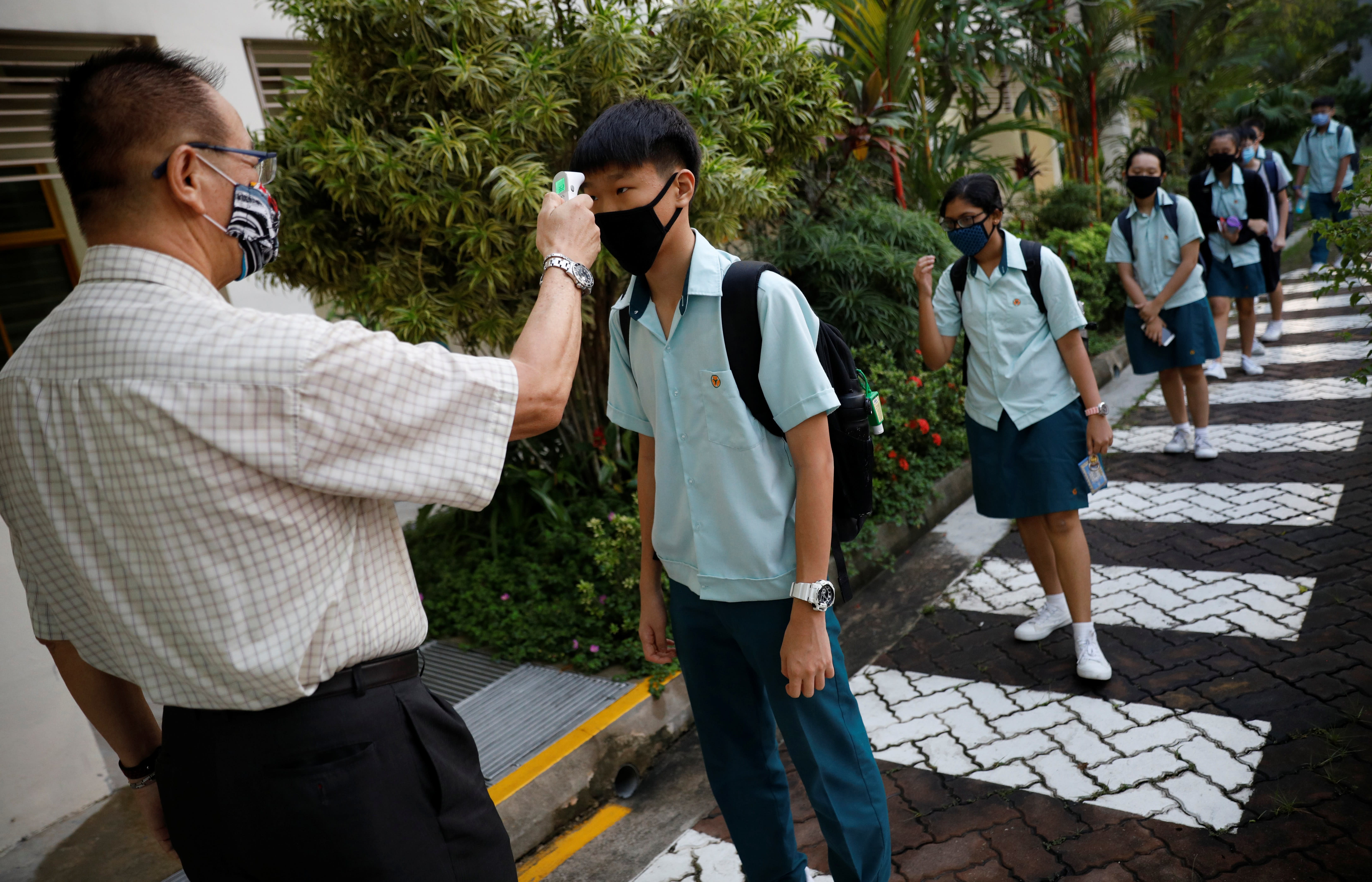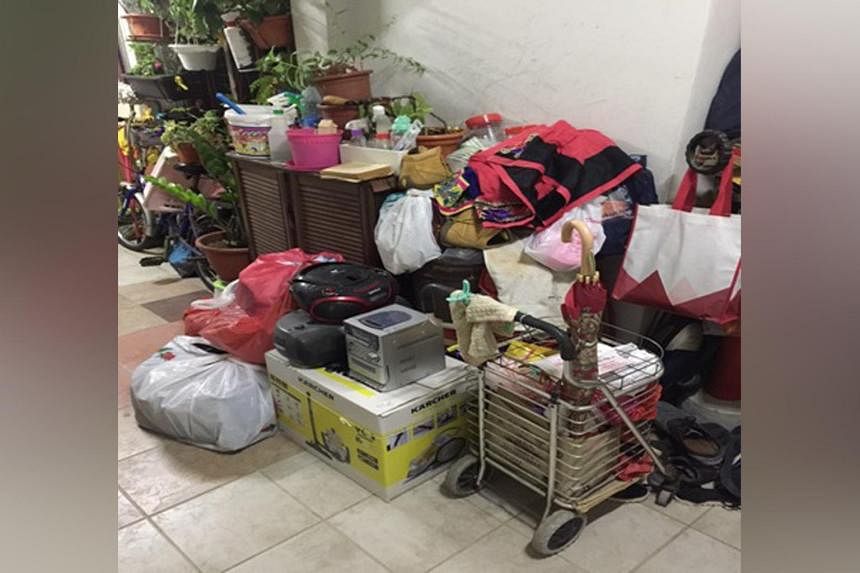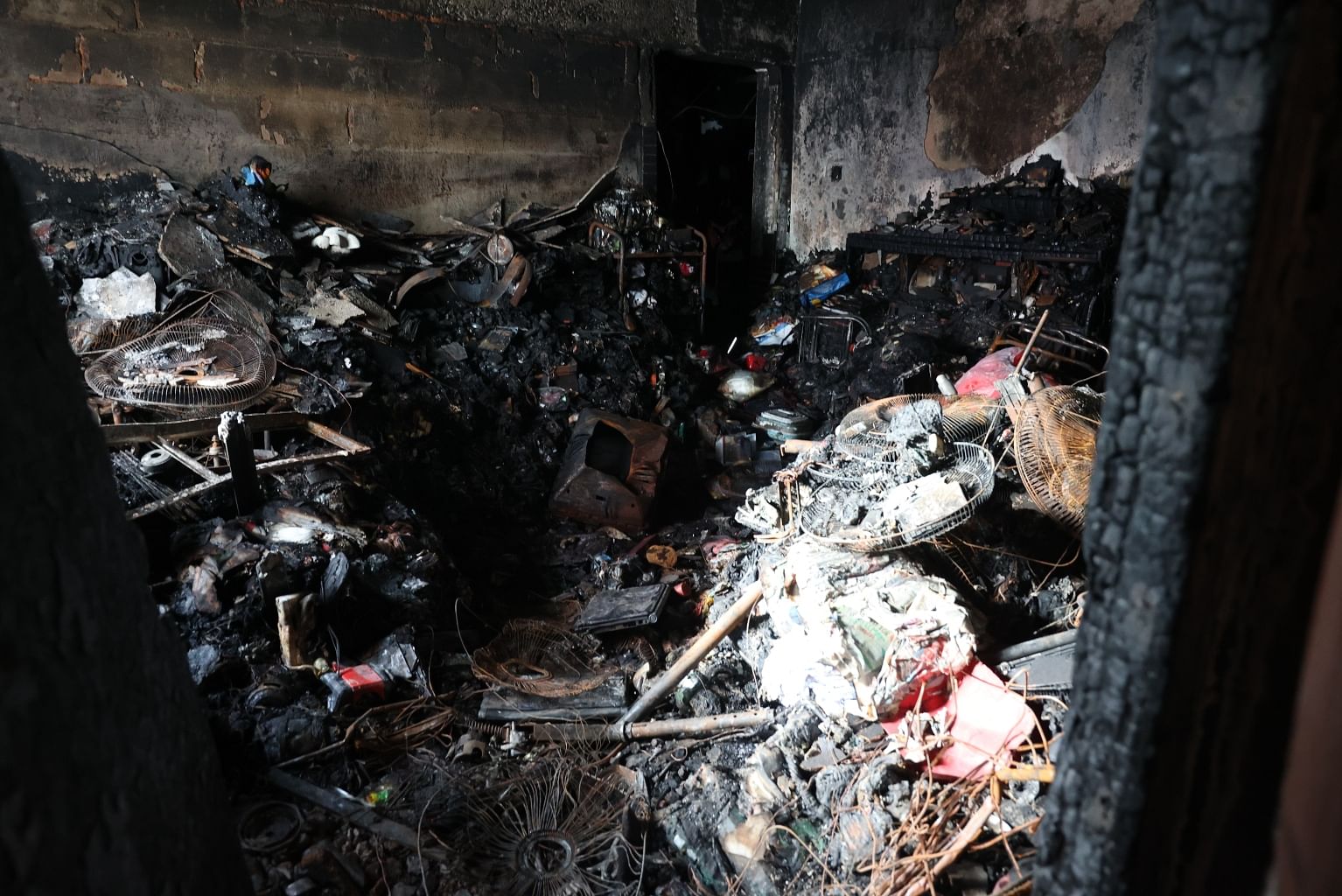Pay raise doesn't solve high stress levels, workload issues, say teachers and allied educators
REUTERSTeachers said that Covid-19 has increased their workloads.
- Six teachers and allied educators who spoke to TODAY said pay increments and incentives are welcomed, but will not help retain teachers
- This is because it does not address the challenges teachers face, which fuel burnout
- Some challenges teachers cited include increasing workloads due to Covid-19 and their leadership duties
- They also said that the grading system, which is used for all civil servants, adds pressure on them to take on more duties
BY
Published August 17, 2022
SINGAPORE — With 40 years of experience under her belt, Gina (not her real name) has seen the workload of teachers increase beyond just teaching, adding to their stress.
“Teaching used to be focused on building values in our students. Now, our focus has spread to being able to perform in other areas and helm leadership roles while juggling administrative work and classes,” said the primary school teacher.
While she — like the other five teachers and allied educators who spoke to TODAY — welcomed the Ministry of Education’s (MOE) move to increase their pay, she said it does not address the high workload and stress.
These teachers gave their views on condition of anonymity as they are not authorised to speak to the media.
The ministry announced on Tuesday (Aug 16) that
37,000 teachers, allied educators and MOE kindergarten educators would get between 5 and 10 per cent pay increase from Oct 1.
It also introduced a new general education officer 5A substantive grade which will allow teachers who do not hold appointments to benefit from a higher salary ceiling from next year.
Currently, only educators holding key personnel appointments, such as subject head or senior teacher appointments, can be promoted to the senior education officer grade.
MOE will also be enhancing the "Connect Plan", a retention plan for education officers, by 20 per cent.
For Tammy, a secondary school teacher, an increment of 5 to 10 per cent will help as it is above the
Monetary Authority of Singapore’s core inflation projections of between 3 and 4 per cent, allowing teachers to maintain their purchasing power.
“But for those who are suffering from burnout, need to spend more time with family or have already made the decision to leave, no amount of money can stop them,” she said.
Other teachers also pointed out that with the Goods and Services Tax (GST) set to rise to 9 per cent, the increment may not be enough in the long run.
Primary school teacher Vanessa added that she and her colleagues did not think much about the announcement as they will not know the exact increase till next month.
“It’s better than nothing but it will probably only be S$100 or S$200 increase, which isn’t a lot. When you compare with what is considered a good increase in the private sector, it's usually an increase of around S$1,000 or more,” she said.
“It’s barely enough for a nice staycation, but do we really have time to go for one?”
Sandra, who has been teaching in a secondary school for 15 years, said that the announcement will reward teachers who have been stuck in the general education officer 5 substantive grade. She declined to share which band she was in.
“But for teachers who already want to leave, they will still leave because the stress levels will not change,” she said.
An outdoor adventure educator who wanted to be known as Cheryl added that she had her performance bonus reduced during the Covid-19 pandemic. She is an allied educator and earns less than S$3,000 a month.
Citing "low pay and heavy workload", Cheryl will be leaving the civil service in the next few weeks to pursue a job in a similar industry that pays better.
“While I am thankful that something is being done to review our salaries, the wait wasn’t worth the increase,” she said.
HEAVY WORKLOAD WILL FORCE TEACHERS TO QUIT REGARDLESS OF PAY
Cheryl said her decision to leave is fuelled by the lack of work-life balance and heavy responsibilities which do not match her pay.
While her workplace has a “work-rest cycle” which is supposed to ensure employees get enough rest after running a three-day programme, she said most work six days a week as they have other responsibilities to fulfil, such as writing risk assessment management systems and their leadership appointments.
Covid-19 has also increased teachers’ workloads, they said.
Sandra said: “Because of Covid-19, we’ve shifted towards home-based learning, had to look into cyber wellness and monitor students’ well-being, all of which we had to put in the hours to learn.
“Even now, we need additional manpower during examinations to wipe down the chairs and tables between the oral exams, and ensure safe distancing measures are adhered to.”
Vanessa, who teaches mother tongue, added that more children primarily speak English at home, making it more challenging to teach her students a different language.
“I took this job because I’m passionate about teaching children, but it's tough when there’s so many other responsibilities outside of teaching,” she added.
Teachers said they are expected to be leaders in co-curricular activities and form teachers caring for their students, to plan events and entertain the demands of children and their parents, aside from teaching and preparing examination materials.
“Our schools are also more inclusive now, so children with special needs are in our classes. Although it is a good thing, it also means we need to dedicate more time to focus on their needs. But with our workload, it’s a disservice to all the students because we can’t fully commit our time without sacrificing our health,” said Vanessa.
Coral, a teacher at a primary school in the south, said: “The greater emphasis on learner-centred education requires teachers to spend more time to facilitate and monitor students’ needs and progress. To monitor effectively, the current Primary 3 to Primary 6 class size of 40 students has to be reduced.”
“Teachers (also) need sufficient time to plan effective lessons, so reduce the teachers’ workload by reducing the number of periods in their timetable.”
GRADING SYSTEM ADDS TO STRESS, SHOULD BE RELOOKED: TEACHERS
Teachers also called for MOE to relook its grading system as they claimed that it pits teachers against each other and pressurises them to become all-rounders.
MOE, like the rest of the Civil Service, adopts a system of relative ranking, where a teacher's performance is not just assessed by his own supervisor, but also cross-ranked with his peers by a ranking panel comprising direct and indirect supervisors.
They can be graded A (the best) to E (the worst).
Teachers with at least a C- grade will be eligible for performance bonuses, while promotion would require a higher performance requirement.
For Gina, the primary school teacher of 40 years, she said that the grading only adds pressure on teachers to take on more leadership roles and work to “showcase themselves” rather than to focus on teaching.
“Grading is the most demanding procedure of a job that is motivated by one’s passions,” she said.
Tammy added that because of the grading system, teachers have to constantly “be on their toes”.
“We’re scared to be penalised when we make a mistake… The grading system does not serve the emotional and mental wellness of teachers,” she said.
“It is ironic that we tell our students that ‘grades don’t matter in life’, yet we grade our teachers.”
On this note, Coral suggested that implementing a mentorship system instead could help teachers improve themselves while elevating pressure off them.




